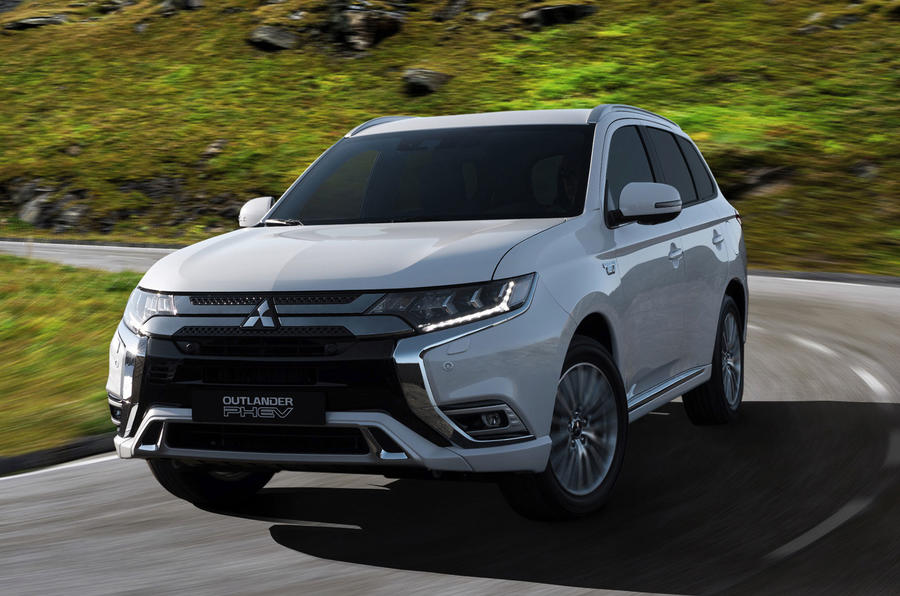Mitsubishi has given its Outlander plug-in hybrid a larger petrol engine with the promise that it’ll offer enhanced performance and improved fuel economy. The revised model is on sale now, priced from £34,255 including the Government's £2500 plug-in car grant.
Revealed at the Geneva motor show, the 2018 model has three trim levels - Juro, 4h, and 4hs, with the 4hs topping the range at £39,100.
It's also received a 2.4-litre petrol engine in place of the current 2.0-litre unit. Mitsubishi says this new four-cylinder engine offers better torque and smoother operation along with reduced emissions.
The Outlander PHEV's electric powertrain, which features two electric motors, has also been upgraded. There's a 10% boost for generator output and the rear-mounted motor’s torque supply, while the 13.8kWh drive battery is now 15% larger to offer more power.
Although specifications are yet to be confirmed, the 2018 Outlander PHEV is therefore expected to lower the NEDC rated 41g/km of CO2 emitted and increase on the official 144mpg of the outgoing version, while also trimming time from its 11sec 0-62mph sprint. It’s likely the current car’s 33-mile pure electric range will be bettered as well.
New WLTP and RDE fuel economy and emissions tests explained
The new car retains the previous Outlander PHEV's Normal and Four-wheel drive modes and gains Sport and Snow settings. Sport sharpens the powertrain’s responses, while Snow enhances traction by juggling torque to each wheel.
Visual changes to the Outlander include new LED day running lights, a more prominent front grille and a new front skid plate. There are also new 18in wheels and a new rear spoiler.
Mitsubishi has also upgraded the car’s dashboard with a new instrument panel, while rear passengers are now provided with their own vents.
Pricing for the updated Outlander PHEV is slightly lower than the current entry point of £34,805, at £34,255.
The Outlander PHEV is the bestselling plug-in SUV on sale, having been bought in more than 140,000 units worldwide. 100,000 of those units have gone to Europe.
More content:
Mitsubishi Colt could return as Renault Clio rival
Rally legends twin test: Mitsubishi Lancer Evo VI Makinen vs Subaru Impreza 22B





Join the debate
Add your comment
Car tax
remember this is a worldwide car so tax rates differ
xxxx wrote:
Not sure what your saying. Its been a great success in the UK with UK company car drivers. I know the changes will have different significance in other countries, but my information was aimed at the above situation. Not suggesting the changes are purely for our benefit, just saying what will happen here.
Why is 2.0 to 2.4L
Why is 2.0 to 2.4L significant apart from technically? If you have the car for its minimal company car tax burden and are re-imbursed for business use by the company using advisory fuel rates (AFRs) - The PHEV suddenly is getting a whole lot better deal. Up to 2.0 the advisory rate is currently 14p per mile. This means (depending on your local fuel prices) you needed to average about 38mpg to not lose your own money, end up subsidising the company! - I know people that have ended up in this position.
The over 2.0L rate is currently 21p per mile meaning only about 26mpg is all you need to do! Even the current PHEV can easily do better than that, the new one is supposed to be more efficient still.It won't be good news to the environmentalists, but who cares?
What it means in reality is you can have a 4wd big SUV, pay very low company car tax (well from 2020 even better when the system changes again) not plug it in if you can't be bothered and still rag it around without losing money, you will probably make a few quid on the re-imbursement. What's not to like?